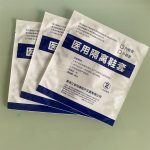
In the world of industrial packaging, the ton bag, also known as a Flexible Intermediate Bulk Container (FIBC), stands as an indispensable tool for transporting and storing various materials, ranging from agricultural produce to chemicals and minerals. Among its many attributes, the astonishing longevity of ton bags remains a focal point of interest and inquiry within the logistics and manufacturing sectors. This article aims to delve into the multifaceted reasons behind the prolonged life cycle of these robust containers, shedding light on their enduring durability and sustainability.
Construction and Material Durability: At the crux of the ton bag’s resilience lies its construction and the choice of materials. Typically crafted from polypropylene—a strong, resilient synthetic fabric—the fabric’s inherent strength forms the backbone of the ton bag’s endurance. Polypropylene exhibits remarkable resistance to abrasion, tearing, and UV degradation, ensuring that the bag maintains its structural integrity even when subjected to harsh environmental conditions and frequent handling.
Reinforced Stitching and Seams: Beyond the choice of material, the meticulous construction techniques employed in fabricating ton bags significantly contribute to their longevity. Manufacturers reinforce these bags with robust stitching and double-seamed bottoms, sides, and lifting loops. This meticulous attention to detail ensures that ton bags can withstand heavy loads without compromising their structural stability over extended periods.
Quality Assurance and Standards Compliance: The longevity of ton bags is further assured through adherence to stringent quality control measures and industry standards. Reputable manufacturers subject their bags to rigorous testing protocols, including weight capacity assessments, load testing, and quality checks to meet international standards such as ISO 21898 and ASTM D7478. Compliance with these standards guarantees the durability and reliability of the ton bags, extending their lifespan significantly.
Adaptability and Reusability: One of the most compelling reasons behind the extended life of ton bags is their adaptability and reusability. Unlike single-use packaging materials, ton bags can be utilized repeatedly for various purposes across diverse industries. Their ability to withstand multiple trips, coupled with the ease of cleaning and maintenance, allows these containers to remain functional for numerous cycles, minimizing waste and contributing to sustainable practices.
Environmentally Friendly Characteristics: In today’s environmentally conscious landscape, the eco-friendly nature of ton bags plays a pivotal role in their extended life expectancy. Their reusability not only reduces the demand for new packaging materials but also diminishes the environmental footprint associated with disposal. Moreover, the recyclability of polypropylene ensures that ton bags can be repurposed into various products, further promoting a circular economy and reducing landfill waste.
Conclusion: The longevity of ton bags is a testament to the synergy between robust design, quality materials, adherence to standards, adaptability, and sustainability. These versatile containers continue to serve as a cornerstone in the logistics and storage of bulk materials, offering durability, reliability, and eco-friendliness. Their extended lifespan stands as a beacon in the realm of industrial packaging, showcasing the potential for long-term viability while championing responsible practices in a world increasingly focused on environmental preservation and resource efficiency.









